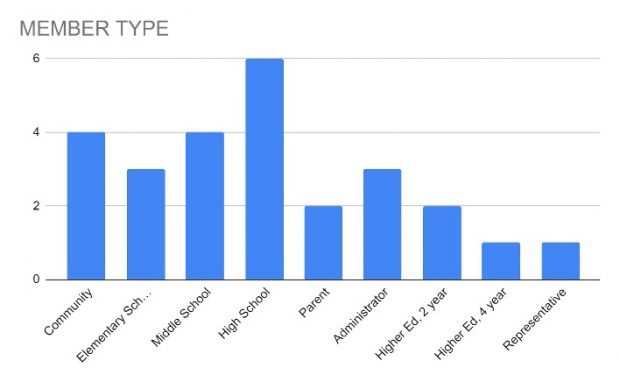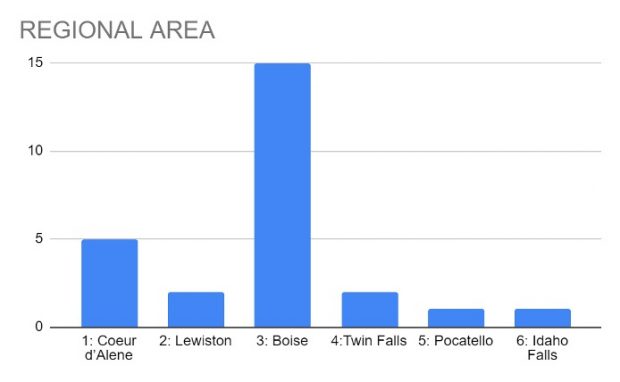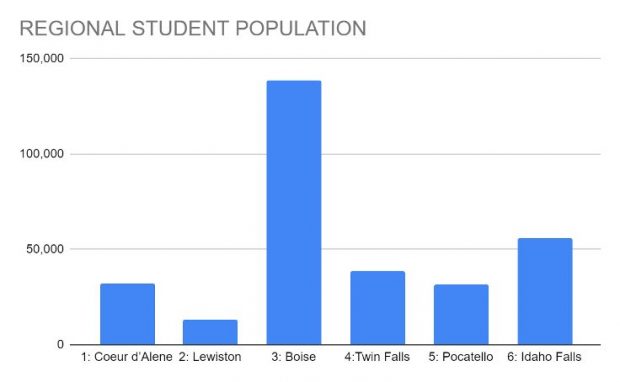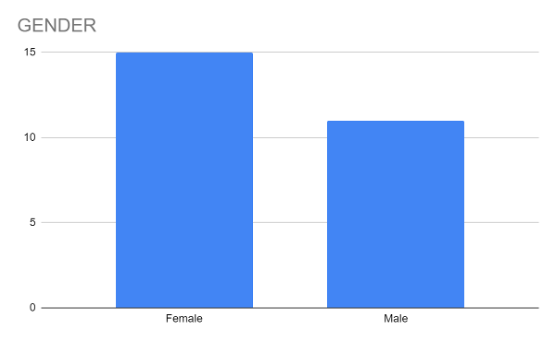Aided by a snack table and hot beverages, 26 teachers, administrators, college professors and community members from all over the state met for 12 hours in Joe R. Williams (JRW) Building at the end of October to revise the Idaho Social Studies Content Standards. Their task is anything but simple.
First, committee members had to decide whether to renew, revise or rewrite the standards. According to the Idaho Department of Education’s Director of Content and Curriculum Meghan Wonderlich, this process happens every six years as mandated by the Legislature.
The committee members decided to revise, and then dug into the 64 pages of the 2016 Social Studies standards.
To tackle the sizable endeavor, the group split into subcategories, with teams taking different sections such as economics, world history, U.S. history, etc. Standards are knowledge-based, meaning they do not give guidance on instruction methods, only general content.
One committee member, Stewart Gardner, a professor of political science and history at Boise State University (BSU) since 2004, joined after being invited by a representative from IDE.
Gardner is part of the U.S. history II team, focusing on U.S. history since 1877. After some discussion, the team decided to take on the daunting task of restructuring the standards to be chronological, as opposed to the more “abstract” thematic approach as currently written.
To find committee participants, the IDE, which runs curriculum reviews, reached out to relevant groups and for the first time had an open application on their website. Wonderlich emphasized that they were “very excited about how many people they had interested.”
On demographics, IDE Chief Deputy Superintendent Ryan Cantrell explained, “we were really deliberate in choosing folks from all across the state of Idaho so…. we would have the most representative sample we could.”
High school teacher Jeff Sorenson remarked that the committee members operate with autonomy, with SDE only adding “advice and coaching” when applicable. Below is a demographic breakdown of committee members.




After completing a draft of the revised social studies standards, SDE will release it to the public to comment on the changes. It will then be sent to the Idaho Board of Education for review. The last step will be presenting the final draft to the legislature in 2025.
The legislature has been involved in social studies curriculum over the past few years, passing “critical race theory” legislation in 2021 under House Bill No. 377. The senate also released the non-binding Senate Resolution No. 118, which explains that “divisive content is appearing in school curriculum across the nation” and warns schools in Idaho to teach both “offenses” and “triumphs” of the past.
Sorenson and Gardner both said this legislation was not a focus of their discussion when deciding how to revise the US History standards, though Gardner did suggest they would avoid any provocative language in their drafts.
Sorenson mentioned the challenges that the politicization of history curriculum can cause in high school classrooms. “Those public conversations don’t reflect my experience as a public-school teacher,” he remarked.
Gardner concurred saying, “overwhelmingly [social studies teachers are] just teaching American history, the way we’ve always taught American history, which of course recognizes mistakes and failures, but also recognizes successes.”
Sorenson said that as a result of the “history wars”, “some students bring a negative perception of social studies to class with them which creates some extra challenges.”
This year, seven different subjects (social studies, informational technology, computer science, driver’s ed, arts, humanities and world language) are reviewing their standards. Drafts will be available for public review in the coming months.
Idaho Education News data analyst Randy Schrader contributed to this report.
